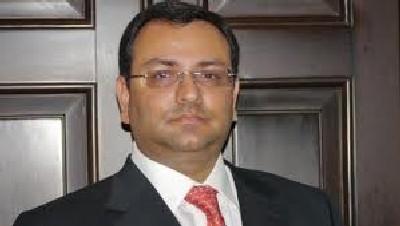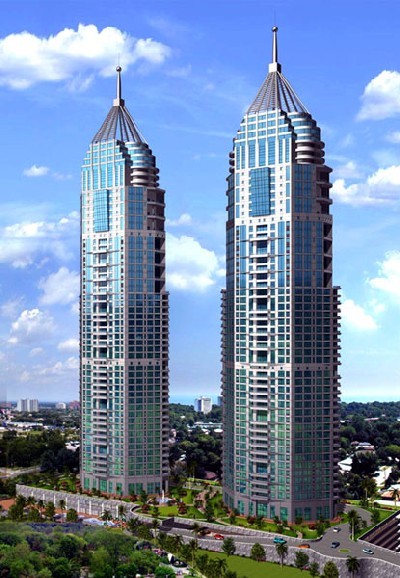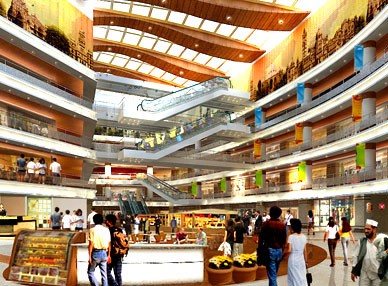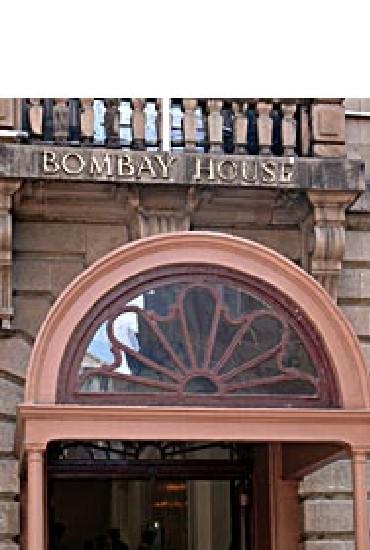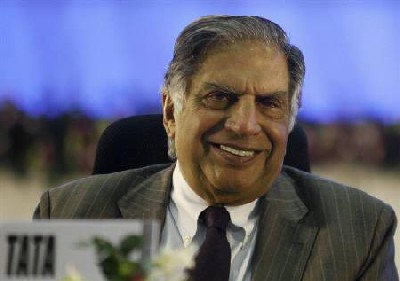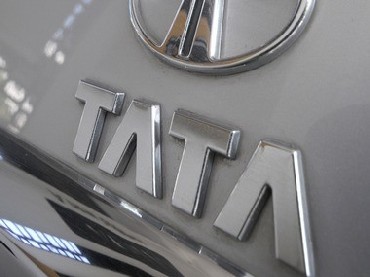 | « Back to article | Print this article |
How Cyrus Mistry steered Shapoorji's fast-track growth
Cyrus Mistry, 43, is proud of the Shapoorji Pallonji group's 147-year heritage. He traces it back to a dam the then Littlewood Pallonji & Co built to bring water to the city of Bombay.
The junior Mistry used to look after construction and infrastructure at the group, while his elder brother, Shapoor, headed the real estate and Forbes' ventures. Father Shapoorji Pallonji Mistry is chairman of the group.
In the decade and a half he has been at the helm of the Rs 9,000-crore group (Rs 90-billion), Mistry has helped it build an impressive portfolio.
Click NEXT to read more...
How Cyrus Mistry steered Shapoorji's fast-track growth
The tallest residential building in India, the largest mall and the largest cement clinker plant in Asia -- he claims all these and more as the group's icons. "These stand as proud testimonies of the abilities of our staff and the faith reposed in us by our clients," Mistry says in his message on the group website.
Shapoorji Pallonji and Co, the group flagship, has grown over 10-fold since the turn of the millennium (Cyrus took over as managing director much before, in 1994), with a turnover now of Rs 2,678 crore (Rs 26.78 billion) and profit of Rs 111 crore (Rs 1.11 billion).
Eureka Forbes, the company that made vacuum cleaners ubiquitous, grew a little over three times in size but profits grew more modestly, at a little over a half from Rs 12.6 crore (Rs 126 million) in 1999-2000 to Rs 19.17 crore (Rs191.7 million) in 2009-10.
Click NEXT to read more...
How Cyrus Mistry steered Shapoorji's fast-track growth
When he took over Afcons Infrastructure as its chairman in the year 2000, it was a Rs 280-crore (Rs 2.8 billion) company, with Rs 5-crore (Rs 50 million) profit.
Last year, the company's revenues were Rs 1,042 crore (Rs 10.42 billion) and net profit was Rs 59 crore (Rs590 million).
An executive from Afcons said Mistry played a big part in the change. "He is the guy who took over the management and turned it around. He is a hands-on entrepreneur," the executive said.
According to data on the Bombay Stock Exchange, Cyrus is on the board of 14 unlisted companies and two listed ones, Forbes & Co and Gokak Textiles. There are 20 operating companies within the group.
Click NEXT to read more...
How Cyrus Mistry steered Shapoorji's fast-track growth
Mistry also played a predominant role in deciding against listing on the exchanges. "The decision to not go for an Initial Public Offer was a board decision, but he played a predominant part in that," the executive added.
It seemed to have clicked, given the state of several listed infrastructure and real estate peers, who have seen considerable market cap erosion in the choppy markets.
What to expect
While Mistry will have to spend more time at Bombay House as deputy chairman of Tata Sons, at the SP Group, a four-member 'Group Centre' will look for and advise the next MD. The Group Centre advises the 'sponsors' (or promoters) in all strategic decisions.
"The group has a lot of depth and a lot of professionals to look after the business. There is a CEO for each of the businesses and those businesses will continue to operate normally," said an insider. "Reporting may change but not the day to day running of the business. Transition will be smooth."
Click NEXT to read more...
How Cyrus Mistry steered Shapoorji's fast-track growth
People who know Mistry said he was soft-spoken, a humble person and believes in collaboration.
"He loves to play golf, manages time for the game and also tries to manage his holidays to permit him to play golf in different parts of the world," according to Eminent Parsis, Part II, 1964-2007, a book by B T Dastur.
Mistry enjoys the confidence of his 5,500-odd employees, but his people skills will be more severely tested in his new assignment, where he has to manage nearly 100 times that number. With nearly 100 group companies, an annual general managers' meet alone was expected to draw more people than the entire staff on the SP group rolls.
Click NEXT to read more...
How Cyrus Mistry steered Shapoorji's fast-track growth
Mistry comes across as a person who wants to keep employees in good humour. He remembers to acknowledge their contribution in the growth of the SP group.
"I am confident that through the devotion and hard work of our staff, we will reinvent our operations with a drive towards industry-leading 'process excellence', so as to deliver our projects on time and with the quality that our customers have come to expect from us," Mistry had recently said.
Adding: "While we take pride in our legacy, we acknowledge that the journey ahead is challenging. Our business environment has seen drastic changes in the light of rising commodity prices, labour shortages, stiff competition and a strict regulatory environment."
Mistry's ability to manage them will determine the course of what looks like a long term at the helm.
With inputs from Aneesh Phadnis.
